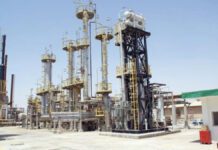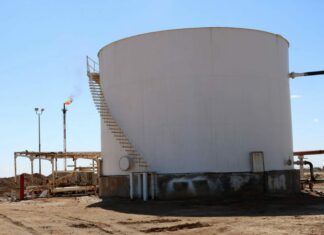
By: Colonel Mustafa Hussein Bakour
Translation: L24
Colonel Mustafa Hussein Bakour, political and military analyst, is a defected pilot and former officer from the Syrian Armed Forces. He now writes and lectures on Syrian political affairs offering his analysis on regional politics and military conflicts. In this article, translated and condensed by L24, Bakour examines the situation in Lebanon and the prospects of war between Israel and Hezbollah.
______________________________
Israeli air, artillery, and missile strikes continue targeting Hezbollah in southern Lebanon. The strikes focus on missile and ammunition depots, launch pads, drones, and Hezbollah members, particularly its leaders. According to party leaders, Israel has caused significant losses, with over 300 Hezbollah members killed, including the high-value target Talib al-Abdullah, who was killed on June 12, 2024, along with three others, including officers from the Iranian Revolutionary Guard Corps (IRGC).
Threats and Posturing
In an attempt to pressure Hezbollah, Israel has issued clear threats to Hassan Nasrallah, stating it knows all of his movements and locations and can target him at any time. The Israeli War Cabinet approved plans to penetrate southern Lebanon, aiming to push Hezbollah forces north of the Litani River in accordance with the UN Security Council Resolution 1701. This resolution, issued unanimously on August 12, 2006, during a previous Israel-Lebanon war, stipulates the deployment of the Lebanese army south of the Litani to prevent Hezbollah operations against northern Israel.
Under the leadership of Hassan Nasrallah, Hezbollah is attempting to deter Israel through media threats to target important facilities within Israel. These threats are accompanied by indirect reassurances that Hezbollah does not seek war with Israel. Instead, Hezbollah has conducted limited bombing operations on some Israeli sites to show support for Palestinians in Gaza without provoking a full-scale war.
Various Actors and Motivations
Several factors could lead to the outbreak of war in southern Lebanon, with different nations and parties having different motivations that influence their willingness and level of involvement in potential hostilities. The unstable political situation of Netanyahu’s Likud government in Israel is a significant motive. Netanyahu faces administrative and financial corruption charges, risking court trials at any moment. The Israeli army’s failure to achieve its declared goals in Gaza, such as destroying Hamas and freeing Israeli prisoners, adds to the pressure on Netanyahu. Consequently, he may see a battle in Lebanon as necessary to deflect attention from his legal troubles and claim a victory that could ease domestic pressures.
While the Lebanese government, run in part by the political wing of Hezbollah, officially supports Hezbollah in any confrontation with Israel, the Lebanese army’s position might differ, as demonstrated by past conflicts. With limited capabilities, the Lebanese army has remained neutral in most previous confrontations. Israel has typically avoided targeting Lebanese army barracks to maintain this neutrality. Thus, the Lebanese army is likely to continue this policy if Israeli attacks are confined to the area south of the Litani River, which has been controlled by Hezbollah for decades.
The US, despite not approving of an Israeli attack on southern Lebanon, cannot remain passive if the conflict arises. The US considers Israel a strategic ally in the Middle East and is committed to defending its security. Anticipating this conflict, Biden has sent an aircraft carrier and warships to the Mediterranean to support Israel if needed. Simultaneously, Washington is exploring diplomatic negotiations to prevent the war, balancing its strategic interests with its desire to avoid further military engagements.

Since its establishment in 1982, Hezbollah has received significant support from Iran. However, the current situation differs from previous years. Iran’s neutrality in the recent Gaza conflict, despite its historical backing of Hamas and Hezbollah, has raised questions about its future support. Analysts expect Iran’s support in a potential Lebanon conflict to be limited to political and media backing, with some Iranian experts and militia members on the ground. Direct Iranian involvement seems unlikely unless vital strategic interests, such as its nuclear facilities or the Assad regime in Syria, are threatened.
The Assad regime in Syria has historically supported Hezbollah but is currently in a weakened position. Assad remained neutral during the Gaza conflict, likely due to Israeli threats to target his regime if he supports Hezbollah or Hamas. Assad’s primary concern is maintaining power and his survival, making it unlikely he will risk supporting Hezbollah in a new conflict. Additionally, many Syrians, who view Hezbollah as responsible for atrocities in Syria, are in favor of Hezbollah’s elimination.
Most Arab countries, except for Syria, and Iraq, blocs of the Lebanese government, and Yemen’s Houthis, support eliminating Hezbollah. They see Hezbollah as an extension of Iran’s influence in the region and believe its removal would weaken Iran’s regional power. For Lebanon, ending Hezbollah’s control could restore sovereignty and independence, freeing Lebanese institutions from Iranian influence.
Military Balance
The military balance heavily favors Israel, supported by the US, Europe, and other allies. In contrast, Hezbollah relies primarily on Iran and, to a lesser extent, Syria. Israel’s military capabilities, if unrestricted, could significantly damage or destroy Hezbollah. However, Hezbollah retains the ability to inflict limited damage on Israel, especially in northern regions, through missiles and drones. Israel’s Iron Dome and civil defense measures are designed to mitigate these impacts.

War on the Horizon?
The likelihood of war remains balanced at 50%. Netanyahu’s political instability and need for a diversion drive the push for conflict. However, political confusion within Israel and international mediation efforts could prevent it. Achieving Resolution 1701’s implementation without warfare would allow Netanyahu to claim a diplomatic victory, avoiding further bloodshed.









